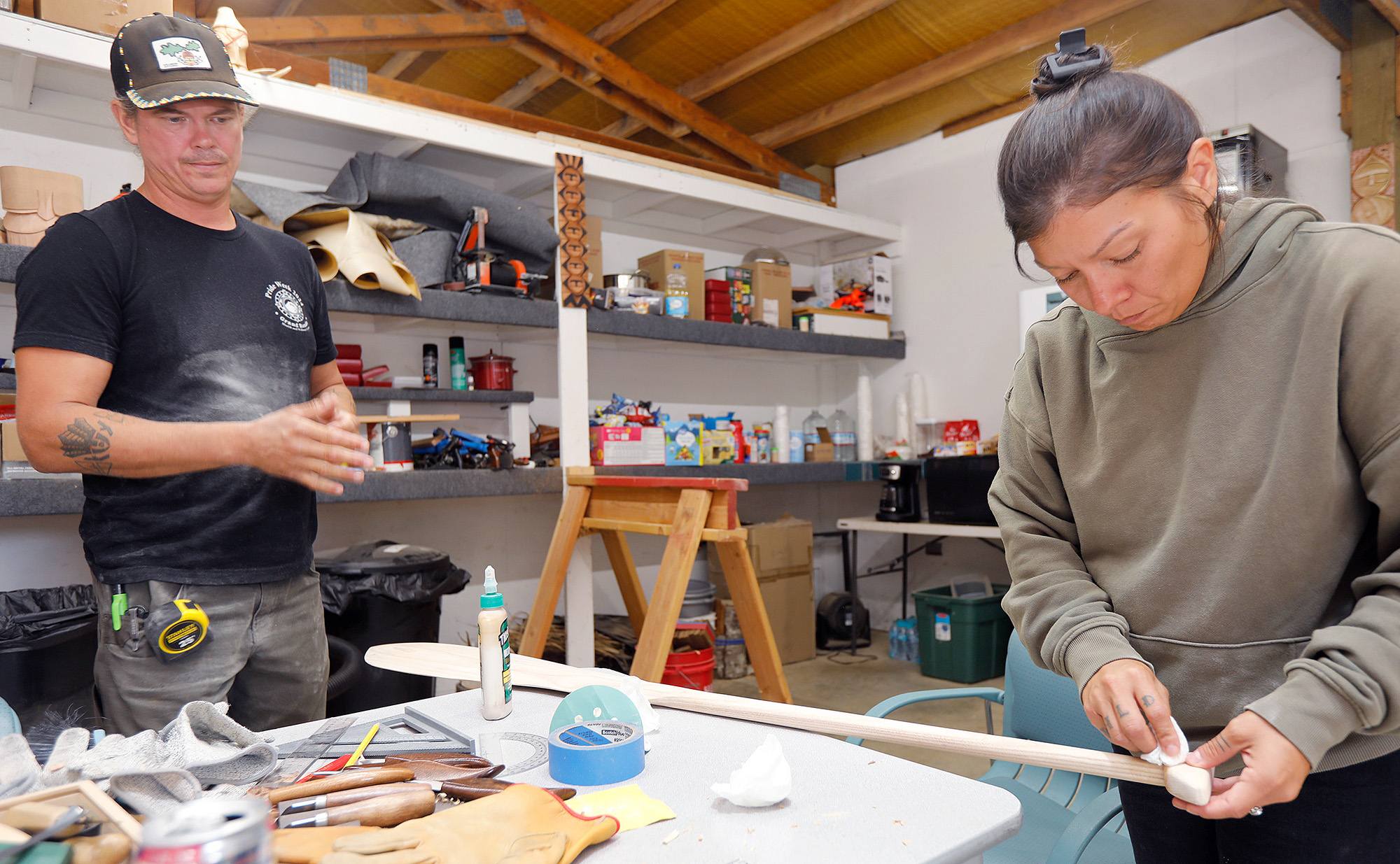Health & Education
Helping Native hands

By Danielle Harrison
Smoke Signals editor
Behind the Tribe’s Health & Wellness Center on Grand Ronde Road, three canoes are housed under a green metal roof without walls or doors. That is by design, according to Tribal Executive Director of Health Services Kelly Rowe.
“We wanted the canoes outside and together,” she said. “It’s nice and people can gather here.”
On the right side of the canoe house, a tall cedar carving depicts a figure with a paddle watching over the area. The carving was a community effort, designed by Tribal member Brian Krehbiel, who worked on the carving with Tribal Behavioral Health Peer Support Specialist Mike Henry and several other Tribal members.
It took approximately a year to complete the work. Not all that time was spent carving, as it was sometimes set aside to work on other projects.
That’s nothing unusual in this space.
“There were lots of times we would stare at it and wonder what to do next with it,” Krehbiel said. “That’s just part of the process.”
Krehbiel and Henry spend nearly every Tuesday and Thursday from 9 a.m. to noon helping Tribal members who want to learn to carve, along with other traditional skills, in the building next to the canoe house. The program began a few years ago after the Tribe purchased the Black property and transformed it into a canoe house, garden and a shop, called Native Help in Native Hands.
Henry has served in the role as peer support specialist for three years and helps Tribal members learn or relearn skills such as beading, drum-making, carving and weaving, along with others who offer help.
“Western medicine is not always the answer,” Henry said. “Natives are supposed to do stuff with their hands and we try to bring that out in people. A lot of people don’t know what they want to do until they start doing it…Everybody here is helping everyone else. There is not a set schedule with what we do.”
Health & Wellness Department Tribal Operations Director Tresa Mercier noted that the shop was founded to provide support for the community as a form of good medicine.
“It’s for everyone,” she said. “People can bead, make paddles, do gardening and other projects.”
On a recent Tuesday morning, Tribal Community Transition Housing Program Peer Support Specialist Sissy Foster-Runningbird worked on a paddle while Krehbiel assisted.
“This is a great resource to have in the community, where you can work on whatever you want,” he said.
Added Henry, “It’s very organic. I’ve had people who say they can’t weave and they turn out to be great at it. This is good medicine for our people. They learn that they can do this. If we don’t know how to do something, we’ll find someone.”
To learn more about the Native Help in Native Hands shop, call the Tribe’s Behavioral Health Department at 503-879-2026.
